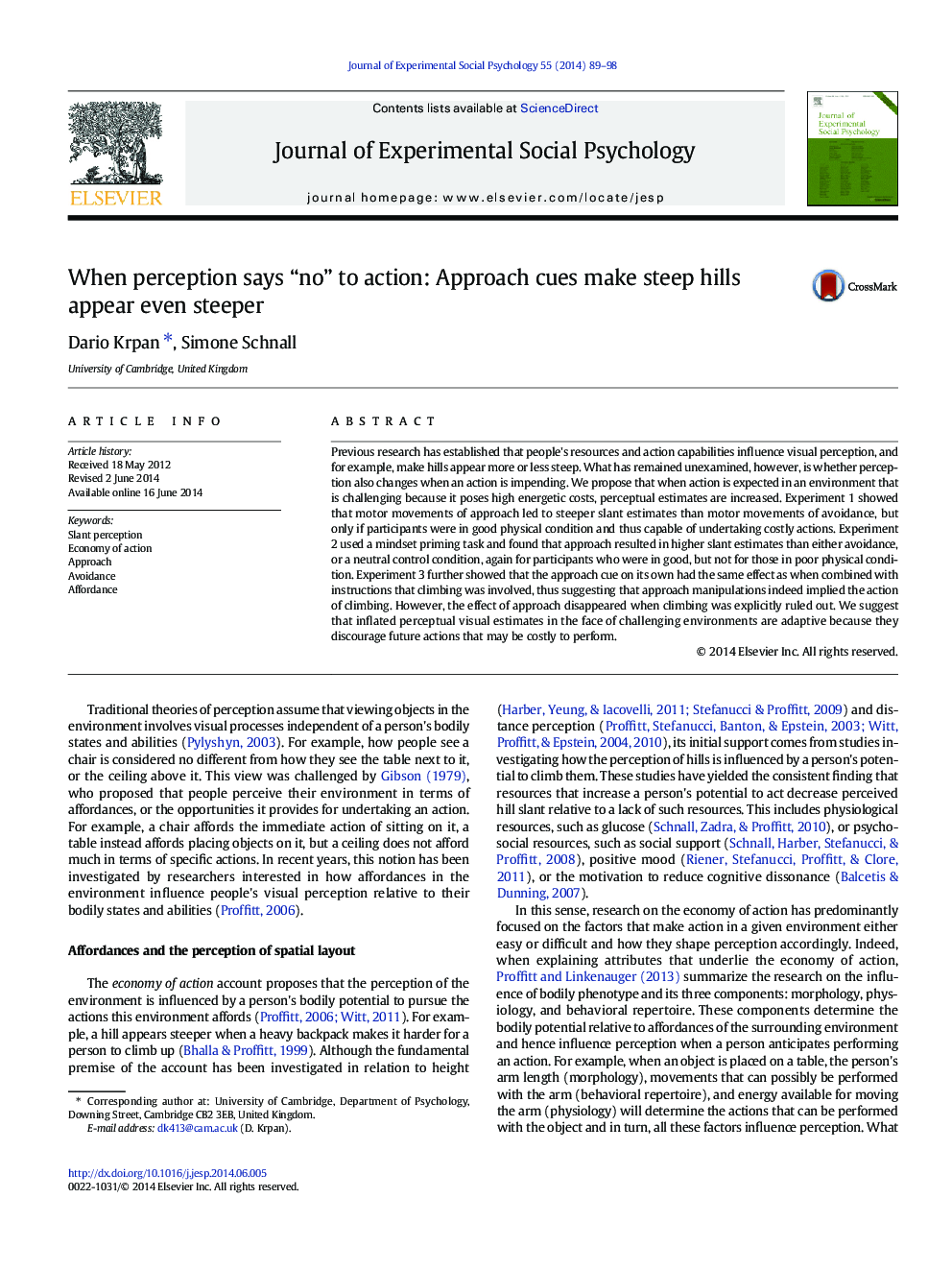| Article ID | Journal | Published Year | Pages | File Type |
|---|---|---|---|---|
| 7324750 | Journal of Experimental Social Psychology | 2014 | 10 Pages |
Abstract
Previous research has established that people's resources and action capabilities influence visual perception, and for example, make hills appear more or less steep. What has remained unexamined, however, is whether perception also changes when an action is impending. We propose that when action is expected in an environment that is challenging because it poses high energetic costs, perceptual estimates are increased. Experiment 1 showed that motor movements of approach led to steeper slant estimates than motor movements of avoidance, but only if participants were in good physical condition and thus capable of undertaking costly actions. Experiment 2 used a mindset priming task and found that approach resulted in higher slant estimates than either avoidance, or a neutral control condition, again for participants who were in good, but not for those in poor physical condition. Experiment 3 further showed that the approach cue on its own had the same effect as when combined with instructions that climbing was involved, thus suggesting that approach manipulations indeed implied the action of climbing. However, the effect of approach disappeared when climbing was explicitly ruled out. We suggest that inflated perceptual visual estimates in the face of challenging environments are adaptive because they discourage future actions that may be costly to perform.
Related Topics
Life Sciences
Neuroscience
Behavioral Neuroscience
Authors
Dario Krpan, Simone Schnall,
